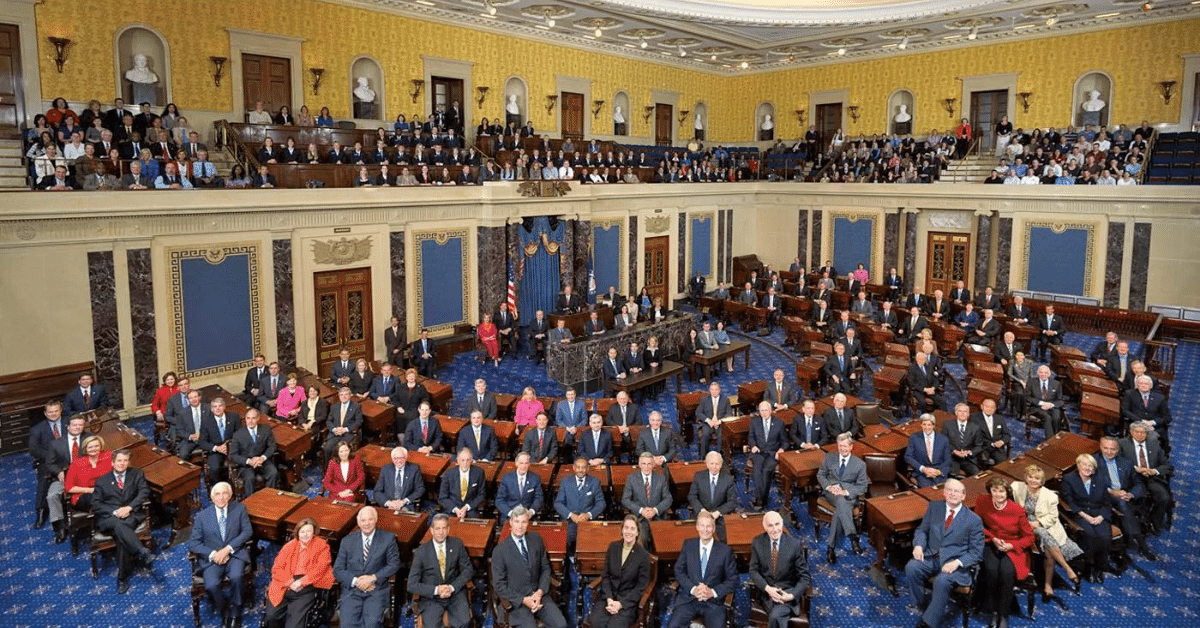Key Takeaways
- The US Senate has advanced the stablecoin regulation bill in a bipartisan vote after at least 60 Senators voted in favor of the GENIUS Act on Monday night.
- The vote on the GENIUS Act, which would set up a regulation for stablecoins, came two weeks after Senate Democrats blocked the measure.
- Bipartisan support for the stablecoin regulation bill previously dissolved due to concerns about conflicts of interest with President Trump.
Against all odds, the US Senate has advanced the GENIUS Act, a major stablecoin regulation bill, on a bipartisan vote only a fortnight after some Senate Democrats vowed to push a united front to block its progress.
Despite lingering Democratic concerns about the GENIUS Act’s design, the cloture motion of the USUS stablecoin bill, also known as the Guiding and Establishing National Innovation for USUS Stablecoins Act, passed by a vote of 66-32, slightly surpassing the 60-vote threshold required to overcome a filibuster.
Greater Regulatory Clarity and Transparency
The passing of the vote marks a significant step towards ensuring that stablecoins come into the mainstream of the US financial system through regulatory backing. According to a press release from the Senate, provisions in the latest draft of the GENIUS Act address new provisions targeting stablecoin issuers aiming to implement greater regulatory clarity and transparency. The proposed law mainly focuses on federal and state oversight for issuers that meet specific market capitalization thresholds.
After the GENIUS Act passed the Senate Banking Committee in March 2025 with bipartisan support, everyone expected the USUS Stablecoin bill to proceed smoothly to the Senate vote. Still, a section of Senate Democrats vowed to block this vote. Led by Senators Lisa Blunt, Ruben Gallego, Andy Kim, and Mark Warner, who had initially supported the bill in March, went on to sign a statement signaling their intention to oppose the bill during its first procedural vote.
The Bill Only Has Republican Backing
However, with cloture now invoked, the bill has a green light to advance to the Senate floor for full consideration and potential amendments. The GENIUS Act, introduced by Senator Bill Hagerty, began as a bipartisan effort, but in its latest iteration, the Democratic co-sponsors were removed, and the bill now has only Republican backing.
Senate Majority Leader John Thune called out his colleagues across the aisle for delaying the vote, stating that no changes have been made to the underlying bill that Democrats blocked two weeks ago. He added that he expected the Senate won’t vote on the final passage before it leaves for the Memorial Day recess. He said:
“It’s tough to understand why we needed to wait 11 days for Democrats to agree to move finally.”
Conclusion
While the GENIUS Act legislation aims to create a regulatory framework for stablecoins, it had previously secured bipartisan support in the Senate Banking Committee in March. However, momentum was lost when Senate Democrats withdrew their support, citing a conflict of interest related to President Donald Trump and Trump-affiliated stablecoin issuer World Liberty Financial (WLF).
Frequently Asked Questions
What is proposed to happen to stablecoins that fail to follow the GENIUS Act?
Stablecoin issuers that fail to meet the requirements could face penalties, lose access to US markets, or be forced to stop operations until they comply.
Does the GENIUS Act apply to algorithmic stablecoins?
The Act focuses on payment stablecoins backed 1:1 by fiat reserves. It does not directly address algorithmic stablecoins, which remain in a regulatory gray area.
Will the GENIUS Act lead to the regulation of other cryptocurrencies?
Yes. The GENIUS Act could set a precedent for how the USUS handles other digital assets, including governance tokens, non-fungible tokens (NFTs), and decentralized finance (DeFi) protocols.























